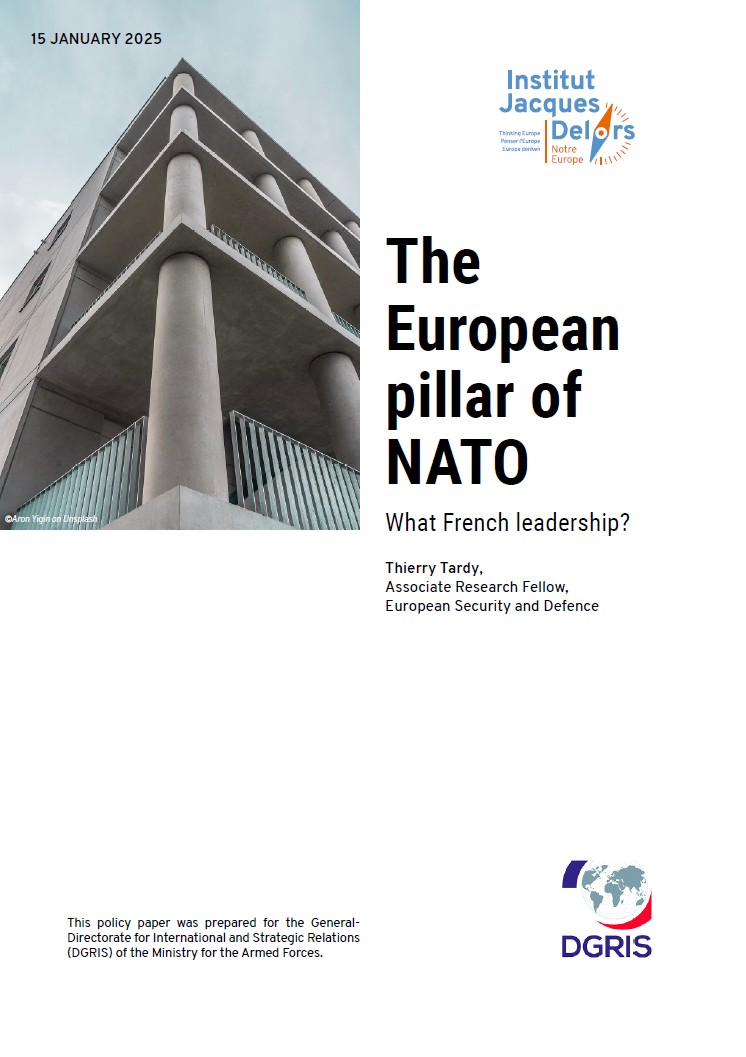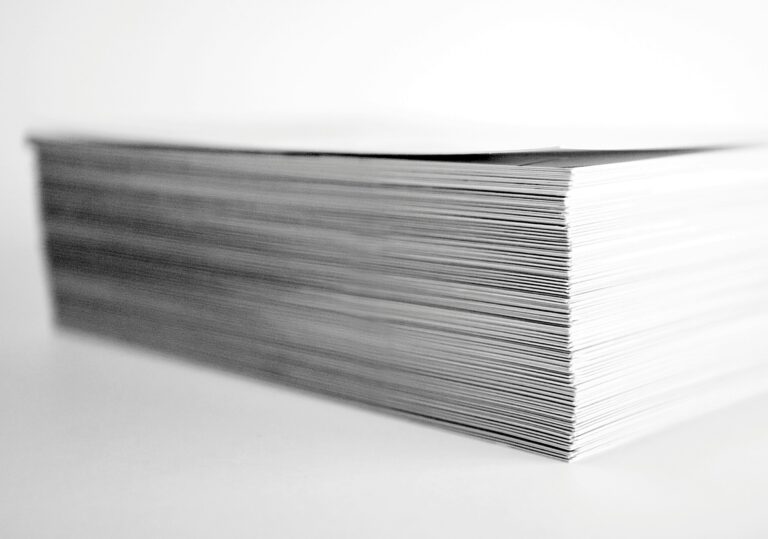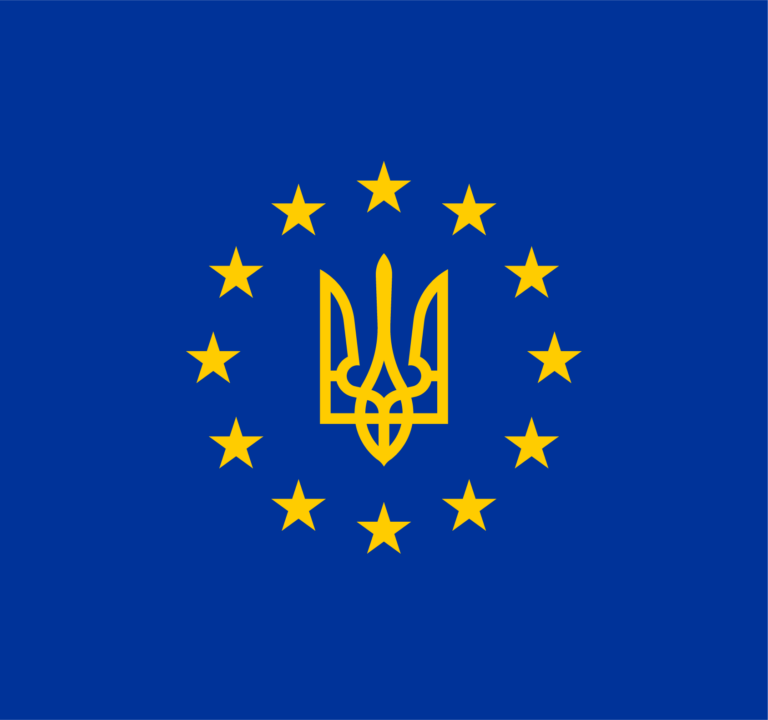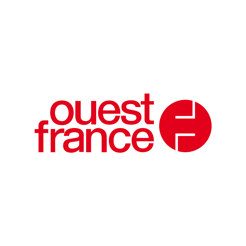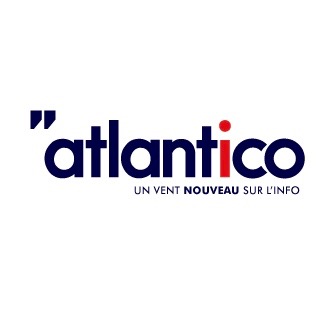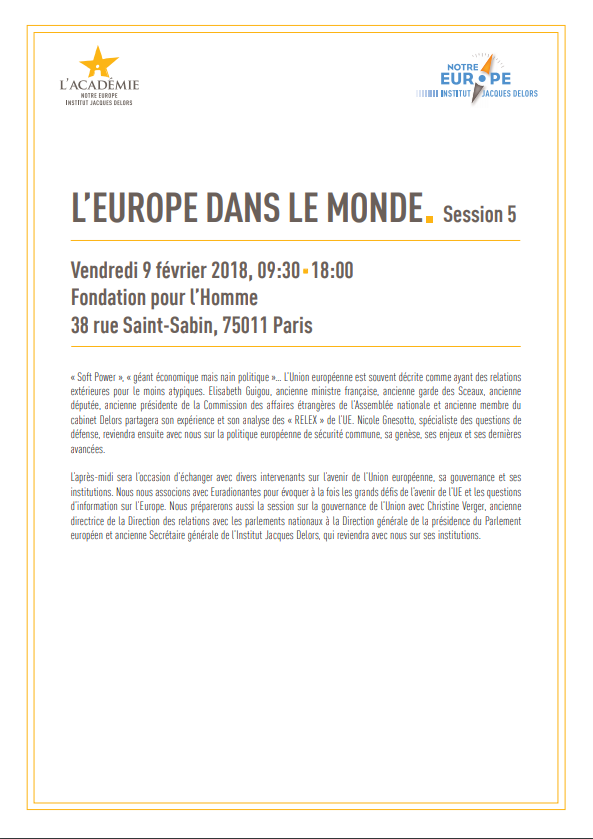Other document
The European pillar of NATO
What French leadership?
Quote this publication
Tardy, T. “The European pillar of NATO”, Other document, Jacques Delors Institute, April 2025
The notion of “European pillar of NATO” has resurfaced in the French strategic narrative with the war in Ukraine and it takes a renewed significance with Donald Trump’s return to the White House in January 2025.
Despite its frequent use, the concept remains loosely defined. Broadly speaking, it reflects the idea of a European defence effort that complements NATO—meaning that European states are expected to assume greater responsibility for the defence of Europe, in coordination with the Atlantic Alliance.
France, however, remains relatively isolated in its support for this idea and has struggled to establish the necessary elements of its operationalisation.
In the context of the war in Ukraine, Donald Trump’s return in Washington, and leadership changes within NATO (Secretary General) and the EU (High Representative/ Vice-President, Defence and Space Commissioner, European Parliament), the European pillar of NATO would benefit from initiatives aiming at:
- Broadening its definitional scope—currently centered on European action within NATO—to encompass two other levels of action that are the EU level (Common Security and Defence Policy (CSDP), European Defence Fund (EDF), and European Defence Technological and Industrial Base (EDTIB)) and the ad hoc multilateral level;
- Reframing France’s leadership role so as to overcome prevailing mistrust, and enabling France—as Germany and the UK have already done—to take the lead on ambitious initiatives that would give substance to the European pillar;
- Building consensus around the concept with key partners—particularly Germany, the UK, and the US—and revitalizing the NATO-EU relationship to clarify the respective roles of both institutions in European defence;
- Operationalizing European pillar of NATO by:
- Enhancing European coordination within NATO;
- Increasing EU visibility within NATO;
- Strengthening the European contribution to NATO operations (eFP, New Force Model, etc.);
- Collectively developing critical capabilities;
- Advocating for greater European representation in NATO leadership positions (logic of ‘burden sharing’ and ‘responsibility sharing’).
SUR LE MÊME THÈME
ON THE SAME THEME
PUBLICATIONS
White Paper: what prospects for a European armament policy?

The EU could and should put an end to unanimity when it comes to sanctions

Towards an EU–Ukraine alliance: A plan for an EU–Ukraine Joint Training Mission

MÉDIAS
MEDIAS
« Pologne, la puissance européenne de 2025 ? »

Nicole Gnesotto, historienne : « D’un pacifisme structurel, l’Europe doit passer à un réarmement solide »

L’OTAN demande aux entreprises européennes de se préparer à un “scénario de guerre” : concrètement, de quoi la France est-elle capable ?

ÉVÉNEMENTS
EVENTS
Euroquestions #67 | European defence in the face of war in Ukraine [FR]

Académie Notre Europe | Session in Brussels [FR]

Euroquestions 56 | How can the European Union arm Ukraine?

Euroquestions #55 | European foreign and defense policy tested by the war in Ukraine [FR]

Euroquestions | Franco-German relations: 2023, year of recovery? [FR]

Euroquestions | Is war in Ukraine putting cybersecurity at risk in Europe?

Euroquestions | War in Ukraine : the European Union’s response, beyond sanctions [FR]

EUROPEAN DIPLOMACY AND THE UNION’S EXTERNAL ACTION [FR]

Académie Notre Europe – L’Europe Commerciale et de la Défense

Lille, 25 octobre 2018 – Europe of defense in a world of bullies

Blois, 12 October 2018 – Cooperation, competition or war? Globalization in all its States










